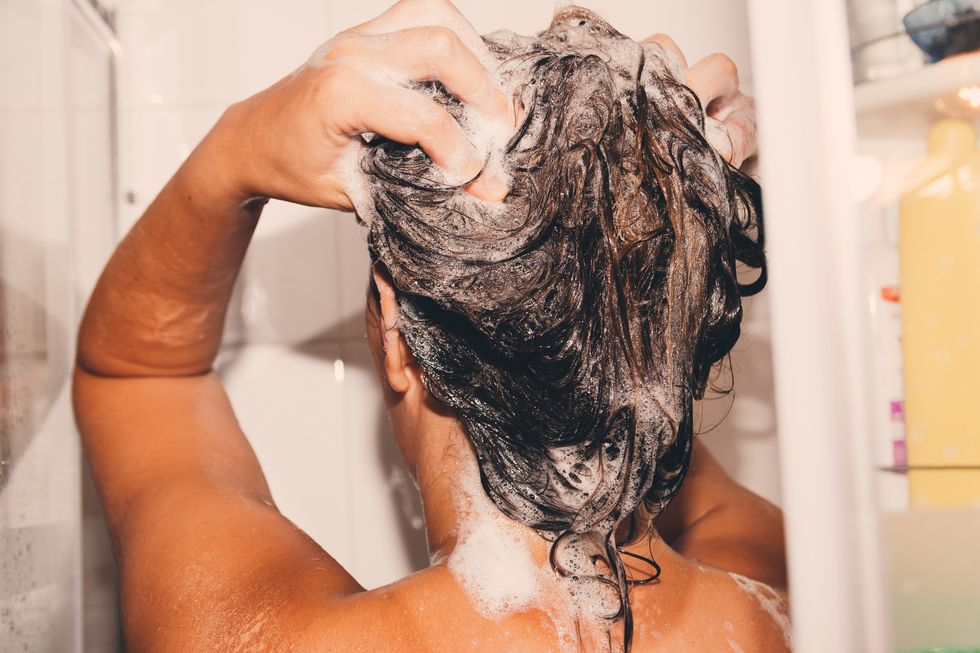'I'm a hair specialist – your washing technique may be causing dryness, breakage and hair loss'

Hair expert Richard Ward explains how to combat hair loss
|GB NEWS

A few tweaks to your shampoo, conditioner, and rinse routine could make all the difference
Don't Miss
Most Read
While hair loss is typically associated with men, it is also extremely common among women.
Around 50 per cent of women aged 70 and above experience female pattern hair loss (androgenic alopecia), although several factors can trigger thinning or shedding, including age, childbirth, illness, poor hair care, hormonal imbalance, deficiencies, and medication.
Thankfully, losing your hair does not have to be a life sentence, and many forms of hair loss are reversible.
**ARE YOU READING THIS ON OUR APP? DOWNLOAD NOW FOR THE BEST GB NEWS EXPERIENCE**
GB News spoke exclusively to CurlsQueen hair specialist Zoey Taylor about how women can combat this widespread issue.
Aside from professional treatments such as minoxidil, which is generally considered the gold standard in over-the-counter hair loss treatments, Zoey recommended revamping your diet and hair care routine.
"To treat hair loss from home, women must keep the focus on overall care that promotes scalp and hair follicle well-being," she said.
According to the expert, your hair washing routine could be doing you no favours.

'Shampooing practices must be gentle and minimal'
| GETTY IMAGESCommon practices, such as using shampoo that contains sulfates, skipping conditioner, and rinsing with piping hot water, can all spell disaster, Zoey cautioned.
"Shampooing practices must be gentle and minimal. Washing your hair every two or three days with a moisturising, sulfate-free shampoo keeps the oils that guard hair follicles on the scalp," she said.
When rinsing, ladies should avoid hot water to "reduce dryness and breakage in the hair". For more moisturised, soft strands, regular conditioning is also a must.
According to Zoey, post-shower styling should always prioritise hair health. The expert stressed that the use of heated tools and chemical processing should be kept to a minimum to "reduce mechanical stress".
LATEST DEVELOPMENTS:

If long, luscious locks are your goal, 'nutrition is the way'
| GETTY IMAGESA second hair expert spoke to the importance of utilising effective hair washing methods.
Confirming that good hair washing makes all the difference, trichologist Taylor Tinham warned that improper use of conditioner can wreak havoc on your strands.
Urging ladies to reserve it for their mid-lengths and ends, she explained: "Not only do conditioners not moisturise your scalp the same way they do your hair, they actually can cause build-up on your scalp, resulting in an unhealthy scalp environment that can lead to hair loss and dandruff."
As well as making changes to your hair care routine, a diet upgrade is another way to treat hair loss.
According to hair specialist Zoey, "nutrition is the way". A diet rich in lean proteins, such as fish, chicken, legumes, leafy greens, nuts, and seeds, provides the body with building blocks like keratin and essential vitamins like biotin, vitamin E, zinc, and iron, the expert explained.
She added: "Vitamin D supplements can also help, especially in women, as it plays a role in hair follicle cycling."
For those who decide to go down the treatment route, the expert revealed that minoxidil is among the most extensively researched as well as FDA-approved medications for female alopecia.
"It [combats hair loss] by dilating blood vessels close to hair follicles, improving oxygen and nutrient delivery, and extending the anagen (growth) phase of hair," she explained.
"Women can apply a two per cent or five per cent solution or foam daily and can anticipate seeing improvement after at least four to six months of continuous use."
Minoxidil is hailed as an effective hair growth solution by many, with one woman reporting significant improvements following "religious" application.
Other over-the-counter topical treatments include shampoos with caffeine or ketoconazole that "diminish inflammation and revive the follicles".
A dermatologist confirmed the hair-boosting benefits of caffeine, telling GB News: "It aids powerful delivery of nutrients to the follicles by opening up blood flow to the scalp."










